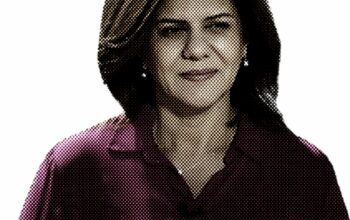Starting from the assumption that “independence” is the very essence of information democracy, autonomy in judgments should be the first requirement of free information. But sometimes it happens that the information is produced by subjects (journalists, bloggers) who do “consultancy” activities or perform paid activities by institutions or companies which they then talk about in their articles, this implies conditioning of their actions /words. Even in journalistic ethics the theme of the mixture of advertising and information is present, but in the latter area it is more easily unmasked (journalists who advertise are sanctioned by the bodies to which they belong, in countries where there are disciplinary bodies). At a macro level, in the dimension of the network, where there are many non-journalists released from journalistic ethics, this issue of conflict of interest risks producing devastating effects.
Fact Checking is a long-established practice, which sees the USA as the first country where this practice has been applied. The advent of the Internet has given new impetus to Fact Checking with the birth of several sites that entrust the veracity of the statements of public figures (politicians, entrepreneurs, etc.) to readers, users and, more generally, to citizens. Thus making communication one of the greatest sources of democracy in our day. Fact Checking as a tempter reveals to us the dark part of information and our bad relationship between reality and what we think of it (or what we would like reality to be).
The most famous Fact checking sites, independent of politics and institutions, scan the news, verify the sources and issue the simple verdict: true or false. Sometimes they make mistakes too, but when they make a mistake they correct themselves, this is the policy of the most well-known fact-checking sites. Modern knights in the perennial fight against the information epidemic who act as floggers of the evil of disinformation in the name of truth. In agreement with the major sites, recognized internationally, such as the promoters of the control of false information, it is possible to catalog the information according to an accuracy scheme that provides:
- True – the statement is correct in all its parts;
- Tends to be true – the statement is largely correct, but errors are present;
- Uncertain – it is not possible to determine the veracity of the statement, for example because it refers to unforeseeable future events;
- Tend to be false – the declaration contains elements of truth but ignores relevant data that would give a different reading;
- False – the statement is incorrect, due to lack of knowledge or mystifying intent.
The criteria for evaluating the declarations of one of the major Italian newspapers “il Giornale” for example provide a very articulated but at the same time clear and easy to use analysis scheme:
- Words matter – paying attention to the vocabulary used to evaluate their appropriateness;
- The context matters – it is also important to evaluate the context within which the declaration has been inserted, since correct information inserted in a misleading context can confuse the public;
- Burden of proof – the responsibility for the truthfulness of a statement and of the underlying assumptions lies solely and solely with the person who declares, while granting the benefit of the doubt in the event of possible alternative interpretations;
- Timing – the declaration is evaluated on the basis of the information available at the time of its release.
Investigate journalism (watchdog) has always occupied a place at the forefront of history, recounting events that have marked the evolution of entire countries for better or worse, influencing generations of people, revolutionizing very different societies. Its task starts from informing the public about what governments, parliaments, institutions, political parties are doing and goes much further: analysis, contextualization, interpretation, commentary, mediation are just some of the tasks that this kind of journalists must carry out in their daily work, inside and outside the editorial offices. The advent of the internet, smart-phones and social networks over the last two decades has made their role (of watchdogs)even more complicated and delicate, putting their authority and credibility at risk, often forced to succumb to what is now called “The era of fake news”.
Fact Checking and watchdog reveals the dark side of information and our bad relationship between reality and what we think of it. With the increased publication of news on social media, the publication of fake news has also grown, in fact publishing fake news requires only time to write them, while verifying its validity requires – fact checking – checks. No factual claim is to be considered true in its own right. The ontological / epistemological distinction is crucial for effective fact checking. While knowledge aims to grasp reality as something independent from any subjective point of view, what we take for practical facts are only beliefs based on essentially limited points of view, but formulated in adherence to conventions, categories and principles that we claim represent the structural conditions of truth.
Ermes Amato
References:
Il Giornale, Chi decide cosa è vero? Gli ‘scheletri’ dei fact-checker, available at: https://www.ilgiornale.it/news/cronache/chi-decide-cosa-vero-scheletri-dei-fact-checker-1950504.html
Lavoce.info, Come facciamo il fact-checking, available at: https://www.lavoce.info/come-facciamo-il-fact-checking/
Pensierocritico.eu, Controllo delle affermazioni giornalistiche e politiche: Fact Checking https://www.pensierocritico.eu/fact-checking.html
Insidemarketing, Fact checking, https://www.insidemarketing.it/glossario/definizione/fact-checking/
Feltrinellieducation, Dal debunking al digitale: le nuove competenze del giornalismo politico https://www.feltrinellieducation.it/magazine/dal-debunking-al-digitale-le-nuove-competenze-del-giornalismo-politico



